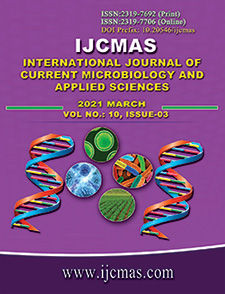


 National Academy of Agricultural Sciences (NAAS)
National Academy of Agricultural Sciences (NAAS)

|
PRINT ISSN : 2319-7692
Online ISSN : 2319-7706 Issues : 12 per year Publisher : Excellent Publishers Email : editorijcmas@gmail.com / submit@ijcmas.com Editor-in-chief: Dr.M.Prakash Index Copernicus ICV 2018: 95.39 NAAS RATING 2020: 5.38 |
With the rising prominence on sustainable agriculture the interest in soil health is reawakening. Poor quality soils are generally vulnerable to weather variations throughout the growing season and which do not support optimum plant growth. Imbalanced and inappropriate use of chemical fertilizer affects soil fertility, crop yield and thus the income of the farmers. Soil testing plays a very vital role in providing unswerving information about the exact amount of fertilizer dose required by diagnosing the physical, chemical and biological properties of the soils. Department of Agriculture & Co-operation under the Ministry of Agriculture and Farmers’ Welfare, Government of India initiated Soil Health Card scheme was in February 2015. In Assam 14, 53,358 no of cards were distributed which accounts to 53.82 per cent of the total 27 lakhs farm families. An attempt was made in this paper to analyse factors affecting the use of Soil Health Card and to explore the problems and prospects associated with the use of Soil Health Card. The study was conducted in Nagaon district of Assam with 80 respondents. The primary data were collected by personal interview method during Feb.-March, 2019.The study concluded that with increase in the level of education, training, high income, increase in awareness level and with more experience in farming the adoption of Soil Health Card scheme increased but the scheme could not bring substantial positive change in the Nagaon district of Assam in the initial years of its distribution because of low rate of adoption of the soil health cards because of the lack of technical advice on method and time of fertilizers application, lack of training, lack of trust in the information given on soil health card, lack of capital to purchase fertilizers and so on. Which demand for mass awareness campaign using the concept of the judicious use of fertilizer as per dose recommended on the Soil Health Card.
 |
 |
 |
 |
 |